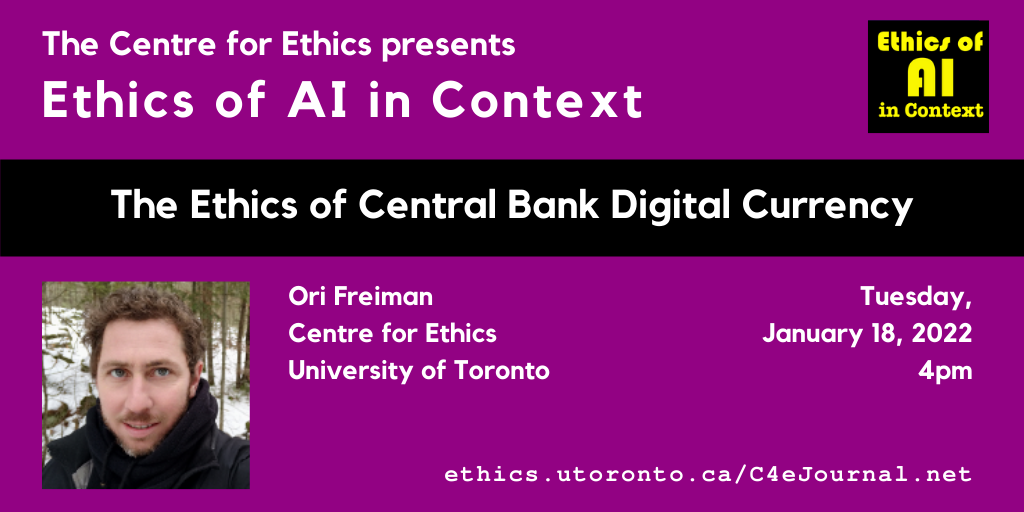
► To stay informed about other upcoming events at the Centre for Ethics, opportunities, and more, please sign up for our newsletter.
The Ethics of Central Bank Digital Currency
No one has any doubt that the future of the economic system is digital. Central banks worldwide worry that the rising popularity and adoption of cryptocurrencies and other means of payments, and new financial instruments, pose a risk to early fintech adopters and the economy at large. As an alternative, most central banks worldwide, led by the Bank of International Settlements, consider the issuance of a CBDC (Central Bank Digital Currency) – the digital form of a country’s fiat money. A CBDC differs from existing cashless payment forms such as card payments and credit transfers: it represents a direct claim on a central bank rather than a financial obligation to an institution.
The digital nature of the transactions, together with algorithms, AIs, and the vast amount of data that such a system produces can lead to many advantages: money supply, interest rates, and other features of the system, are expected to be automatically aligned with the monetary policy to achieve financial stability. In addition, tracking digital money routes reduces the ability to launder money, hide payments for illegal activities, and make it harder to evade taxes (and easier to accurately and automatically collect them).
As with any promising technology, this digital manifestation of money has a dystopian side, too. In this presentation, I focus on identifying the ethical concerns and considerations – for individuals and the democratic society. I will describe how data from such a system can lead to unjust discrimination, how it enables surveillance in its utmost sense, how social developments are at risk of being stalled, and how such technology can encourage self-censorship and cast a shadow over the freedom of expression and association.
I’ll end with normative recommendations. System designers, developers, infrastructure builders, and regulators must involve civic organizations, public experts, and others to ensure the representation of diverse public interests. Inclusion and diversity are the first lines of defence against discrimination and biases in society, business, and technology.
► please register here
This is an online event, available on the Centre for Ethics YouTube Channel, on Tuesday, January 18. Channel subscribers will receive a notification at the start. (For other events in the series, and to subscribe, visit YouTube.com/c/CentreforEthics.)

Ori Freiman
Postdoctoral Fellow in Ethics of AI
Centre for Ethics
University of Toronto
Tue, Jan 18, 2022
04:00 PM - 05:30 PM
Centre for Ethics, University of Toronto
200 Larkin
